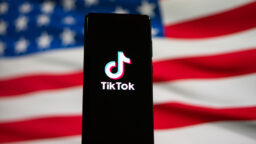TikTok says it’s planning to invest billions in Southeast Asia, a region that is proving to be one of the short video platform’s key markets.
“We’re going to invest billions of dollars in Indonesia and Southeast Asia over the next few years,” TikTok CEO Shou Zi Chew said, as quoted by Agence France-Presse, via The South China Morning Post.
“From a humble team of about 100 people, we now have nearly 8,000 employees in Southeast Asia.”
Chew didn’t elaborate on how much money specifically the company is planning to spend in the region that has a population of 630 million, half of them under 30, Reuters reported.
The TikTok CEO was speaking at a forum organized by TikTok in Singapore, where the Bytedance-owned platform sold attendees on the strength of TikTok as a commerce platform.
Chew’s comments came the same day as the release of a report from Singapore-based consultancy Momentum Works, which showed the significant inroads TikTok has made as an e-commerce platform in Southeast Asia – and how far it’s lagging behind some regional competitors.
Overall, the report found that TikTok was the fastest-growing e-commerce platform in the region, with the gross merchandise value (GMV) of sales on the platform soaring to $4.4 billion in 2022, compared to $600,000 in 2021. That gave it the fastest rate of growth of any ecommerce platform in the region.
However, TikTok remains far behind Shopee, the platform owned by Singapore-headquartered Sea Ltd., with a GMV of $47.9 billion in 2022. In second place was Lazada, a subsidiary of China-headquartered Alibaba Group, with $20.1 billion in GMV.
Indonesia is by far the largest e-commerce market in the region, with 52% of total GMV, the Momentum Works report said.
The report sees plenty of potential for TikTok to expand its e-commerce presence. It forecasts that total GMV on e-commerce platforms in Southeast Asia will roughly double over the next five years, from around $100 billion annually today to between $175 billion and $232 billion by 2028.
Expanding its role as an e-commerce platform isn’t TikTok’s only plan; the platform has also been moving into the music business, a fact that has at times put it at odds with major music industry players.
Earlier this year, TikTok struck a deal with Snoop Dogg that would see the hip-hop artist’s catalog appear exclusively on TikTok for a set period of time before it appeared on other streaming platforms.
At roughly the same time, it emerged that some TikTok users in Australia were unable to use some major label-licensed music in their videos, in what appears to have been an experiment attempting to prove that TikTok video producers don’t need major label music to produce videos. (Music is often a driver of video discovery on TikTok.)
“We’re going to invest billions of dollars in Indonesia and Southeast Asia over the next few years… From a humble team of about 100 people, we now have nearly 8,000 employees in Southeast Asia.”
Shou Zi Chew, TikTok
A year earlier, TikTok launched its own music distribution platform, SoundOn, which allows creators to upload their music directly to TikTok, ByteDances’ music streaming app Resso, and other services like Spotify.
Last month, the company launched what it calls an “Artist Impact Program,” which allows artists to opt into TikTok’s Commercial Music Library, a catalog of more than 1 million rights-cleared songs sourced from an “extensive network of partnerships.”
However, TikTok’s plans to grow its involvement in e-commerce and music is being challenged by the political problems the company is facing, set against the backdrop of growing tensions between China and Western countries.
Chew faced a four-and-a-half-hour grilling in front of the US Congress this spring, in which the CEO was challenged repeatedly to assure lawmakers that the personal data of TikTok’s US users wasn’t being transferred to China.
Chew highlighted TikTok’s “Operation Texas,” an ongoing project to shift US users’ data from servers in China to Oracle servers in Texas. However, he admitted that the Texas facility is not yet fully operational, and some ByteDance engineers in China do have access to US user data.
A number of governments around the world have banned employees from using TikTok on government-issued devices over security concerns. Among them are the UK, France, Australia, the US as well as some US states, and the European Commission.
However, the state of Montana has gone a step further, with the governor signing into law a bill that bans TikTok from the state entirely. The law punishes any app store that makes the app available to users in the state, but limits punishment to app stores and not app users.
TikTok has filed a First Amendment (free speech) challenge to the law, while a group of TikTok users in the state have filed their own legal challenge, on similar grounds.Music Business Worldwide




